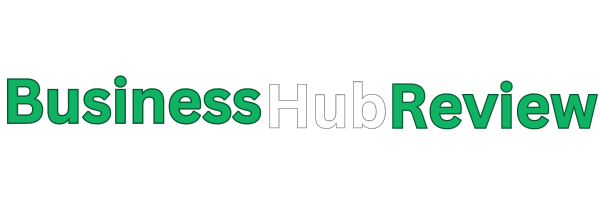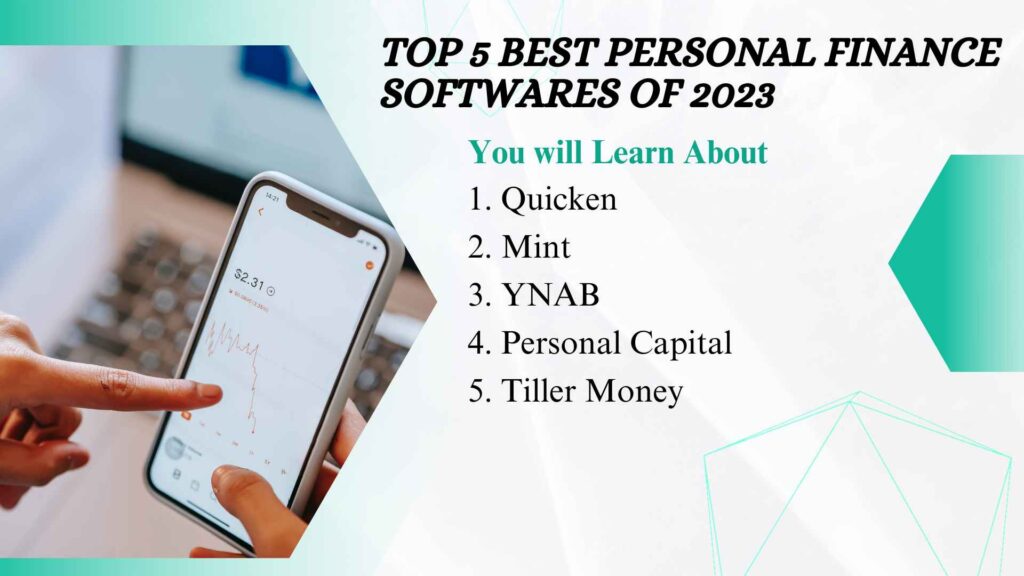Personal finance software and apps can help you learn the basics, improve your money management, and attain your long-term goals. Your cash needs determine the best personal finance software. Personal finance tools can help you budget and manage your investments. Personal banking software budgets matter.
Guys! Are you ready to improve your finances? Personal finance software helps you budget and develop healthier money habits. Here are the top personal finance software programs and the best free ones.
Selecting Personal Financial Software
Consider these factors when choosing personal finance tools:
- User-friendly software offers a straightforward interface.
- Test the software with your system and devices.
- Consider which software helps you achieve your financial goals while evaluating features.
- Protect your financial data with security software.
- Assess the software provider’s support.
Best Personal Finance Software
Apps for managing money:
1. Quicken is the Best Money Manager
Quicken, the best personal finance software, is 10% off. One PC or mobile software may handle investments, bills, and planning.
Quicken’s desktop version made it famous, but now you can use it on your phone or tablet. Quicken is a popular financial program. Quicken has many financial reporting options. These cover planning, paying bills, budgeting, and investing. It allows you to compare your purchases and income for planning.
Check your account balance and bill balance. See which utilities and other providers you pay the most. To track your expenditures, combine your credit card and bank bills for accounting. This helps since individuals must recognize how much they spend on minor things daily.
It also tracks your savings, investment portfolio, and 401(k) pension plan assets. You know the value of your savings and investments. However, stock market fluctuations shouldn’t worry you.
Quicken’s dashboard integrates banking, investment reporting, and budgeting, which you may access from a PC or mobile device. You can try Quicken without risk for 30 days!
Pricing
Starter is $35.99 per year, Deluxe is $46.79 per year (up from $51.99 per year), Premier is $70.19 per year (down from $77.99 per year), and Home & Business is $93.59 per year (down from $103.99 per year).
2. Suggested for People who are just starting with Money: Mint
Why it’s Important
Mint is a great choice if you’re new to managing your money and want to do most of it through an app or website. Mint’s management tools make it easy to take charge of your funds.
Before using it, you must add your bank accounts, credit cards, investment accounts, loans, and mortgages to Mint. The software wills categories you’re buying and tells you how much you’ve spent. You can make a budget and limit how much you can spend in certain areas. Through its partnership with Billshark, Mint allows users to negotiate bills and set savings goals.
What to keep an eye on
If you agree to use the bill negotiation tool, Billshark will charge you 40% of the money it saves you for as long as you use the service.
Pricing
If you choose a payment plan instead of paying for everything at once, there will be a one-time cost of $9.
3. YNAB is the Best way to Manage Personal and Business Funds
YNAB stands for You Need A Budget and tells you what to do if you need to know. Because, hey, you do need one if you want to spend only some of the money you have and more. Maybe you also have more money than you thought you would.
As you might expect, the main goal of YNAB is to help you cut your spending and stop living salary to paycheck. If you stick to the plan and limit your spending, YNAB will soon notice that you are spending money from last month instead of the money you just got.
It is easy to set up, works with most transaction data that can be downloaded from banks, and can be used by people and small businesses by changing its money categories to fit your needs.
YNAB is fairly understanding and forgiving for a piece of software. If you get off track, it will tell you how to get back on track. You’ll have to give up some things, but if you need direction, this is a better choice than Quicken.
Here, you can try YNAB for free for 34 days.
If you want to get better at managing your money, YNAB is a great option to think about. You can now use a free 34-day trial to check out all the features and functions without paying anything.
4. Empower, which used to be called Personal Capital
Personal Capital is powerful software that helps people plan for retirement and manage their investments. It gives you a full picture of your finances by combining your bank accounts, investments, and retirement funds.
With Personal Capital, you can keep track of your net worth, look at your investment account, and get personalized financial advice. There are free and paid versions of the software, and the paid version has more features.
Pricing
There is no free sample. Software for making budgets is free. An investment management fee of 0.89 per cent is charged on the first $1 million.
5. Tiller Money
It is a personal budgeting program with Microsoft Excel and Google Sheets. It is based on spreadsheets. It lets you track your money and make a budget based on your interests. Tiller Money imports and sorts your financial activities automatically, giving you the most up-to-date information about how you spend your money.
The software includes examples and a community-run library to help you get started. The software Tiller Money, which you pay for by subscription, comes with a free sample.
Pricing
Offer of a free trial: Tiller Money is a good choice if you want to handle your money better. Right now, you can use a free trial to check out all of the features and functions without paying anything—price: $79 per year.
Why should you use financial software for yourself?
There are many good reasons to use personal banking software.
- Personal finance software gives you one place to keep track of your income, expenses, assets, and debts.
- These software programs make it easy to make a budget by automating tracking spending, categorising it, and making a budget.
- Personal finance software gives you reports and graphs that help you understand your finances and how you spend your money.
- You can set financial goals and use different software tools to track how close you are to reaching them.
- Personal finance software can handle tasks like paying bills, moving money into savings, and keeping track of investments so you remember important dates.
Final Words
We agreed that Quicken was the best personal finance program because it has many good features. It helps you make a budget, keeps track of your bills and spending, and lets you export information to Microsoft Excel. You can also set up bill payments with the app, which works with the Android, iOS, MacOS, and Windows operating systems.
You can go right with Mint for planning, and TurboTax is the best way to do your taxes. Empower is a great choice for people who want software that helps with savings.
FAQs
Can my bank accounts and the apps I use to manage my money work together?
There are a lot of alternatives to personal finance software that let you sync your bank account. This lets you instantly import transactions and keep your financial information up to date.
Do you think paying a monthly fee for personal business software is worth it?
The value of a subscription to personal finance software depends on what you need and what it can do for you. When figuring out if it’s worth the price, consider how it will save you time, help you understand your finances, and help you reach your goals.
Can software that helps me manage my money help me improve my credit score?
Even though personal finance software won’t directly raise your credit score, it can help you manage your money better, leading to better spending habits that could finally raise your score.
Will my bank accounts be safe when I connect them to personal finance tools?
Secure providers of personal finance apps use encryption to keep your financial information safe. But it’s important to choose a reputable software provider and follow security best practices, like picking strong passwords that are both unique and hard to guess.
Can software that helps you do your taxes help with your finances?
Some alternatives to personal finance software have tax-related features, like categorizing costs for tax deductions and exporting financial data for tax filing. But you should talk to a tax professional if you have a complicated tax question.


2 Comments
Pingback: 10 Personal Finance Tips for Young Adults for 2023
Pingback: What You Need to Know About the Importance of Archivebate 2023 - Businesshub Review